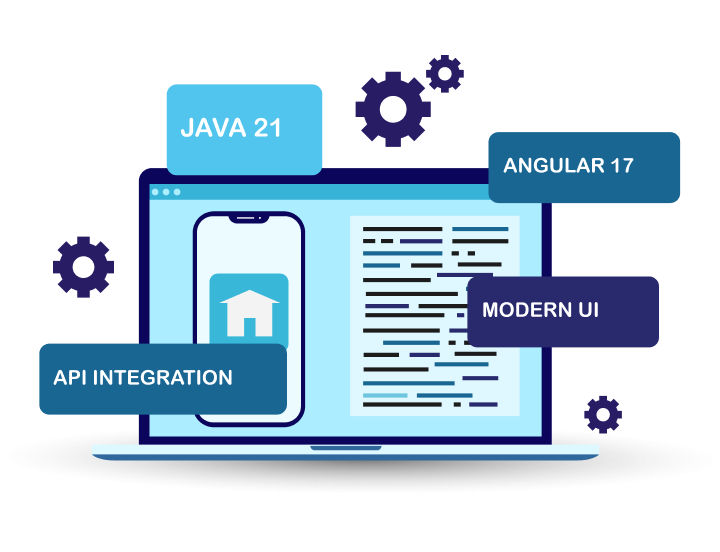IT Modernization
The existing applications, which were built using Struts 1.x and Vaadin 7.x, are outdated and hard to maintain. These technologies had several security flaws, as highlighted by Nexus IQ and could only be fixed through a complete rewrite of the applications. Over time, upgrading and scaling these legacy systems had become more complicated and costly, as Vaadin is licensed.


Problem
Statement
The existing applications, which were built using Struts 1.x and Vaadin 7.x, are outdated and hard to maintain. These technologies had several security flaws, as highlighted by Nexus IQ and could only be fixed through a complete rewrite of the applications. Over time, upgrading and scaling these legacy systems had become more complicated and costly, as Vaadin is licensed.

Solution
Proposed
To tackle these challenges and ensure the applications are future-proof, the proposed solution was to modernize the system by rewriting both the front-end and back-end components using more contemporary, maintainable and scalable technologies.

Back-end Modernization with Java 17 & Quarkus
01
Java 17: Transitioned to Java 17 for better performance, enhanced security and access to the newest libraries. It improves garbage collection, runtime efficiencies and pattern matching features, enhanced user security.
02
Quarkus: Revamped the backend using Quarkus, a lightweight, cloud-native Java framework optimized for use in containerized environments (like Docker, Kubernetes).
Frontend Modernization
01
Angular 17: The front-end has been entirely restructured using Angular 17, a robust and modular JavaScript framework. It promotes easy maintenance and extension through the use of reusable components.
02
Modern UI Features: The design includes responsive layouts, enhanced performance and improved user experience.
03
API Integration: The front-end interacts with the back end through RESTful APIs, facilitating independent development and the integration of future technologies.
Business
Values
01
Enhanced Maintainability and Upgradability
Utilizing Angular 17 and Quarkus leads to quicker bug fixes, security updates and smooth feature enhancements, thereby simplifying long-term development.
02
Cost Efficiency
Modernizing the application enables the business to reduce ongoing maintenance expenses tied to obsolete technologies.
03
Accelerated Time-to-Market for New Features
The modular architecture of Angular and Quarkus supports quicker development processes, making it simpler to introduce new features.
04
Improved Security
Quarkus and Angular safeguard the enterprise against possible cyber threats. The updated stack complies with current security standards.
05
Increased Developer Efficiency
Angular 17 and Java 17 boost developer efficiency through improved tooling, TypeScript integration and contemporary development methodologies.